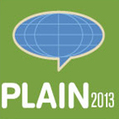
These three have been in the same arena for some time. But, now they must be given equal opportunity to be integrated into learning - and create a strong based for learner-centred training from the beginning.
NALD's recent feature - 'Thinking about the Embedding of Essential Skills - Especially for 21st Century Learners', by Pat Salt, a learning support strategist with PLS Consulting in Calgary, delves into the 'new approach' needed. Her approach was explored at a recent pan-territorial forum, Made in the North.
The Environmental Research Web site reports on how plain language was used in a poll to help clarify the raging debate about climate change. The Vision Prize poll of earth and climate scientists asks straightforward questions. The success has been measurable, and they are extending the survey to more participants. It shows a commitment to research using plain language to help clear the air around a very divisive topic.
Despite the arrival of March 1 - and World Book Day - the UK's Literacy Trust found a quarter of adults hadn't read a book in the last six months. One answer: Quick Reads released a number of titles costing 1 pound each. It may not be the answer, but it is an answer.
These examples show responses to critical issues - with the audience's needs up front -are demonstrating strength of a solution shared by literacy, essential skills and plain language.
The next step must be the integration of these three keys - literacy, essential skills and plain language - into learning success at every step of the planning process.
Find out more at the PLAIN2013.org Conference plenary session on integrating plain language.
 RSS Feed
RSS Feed
